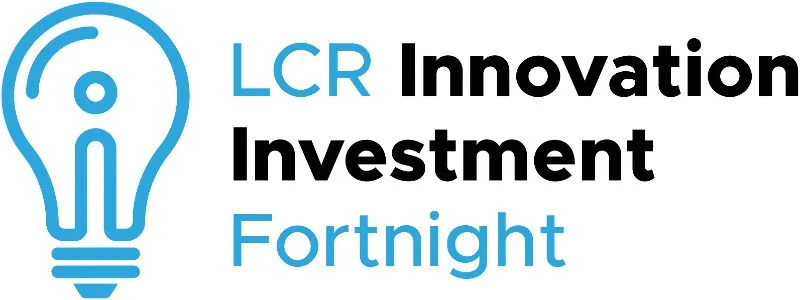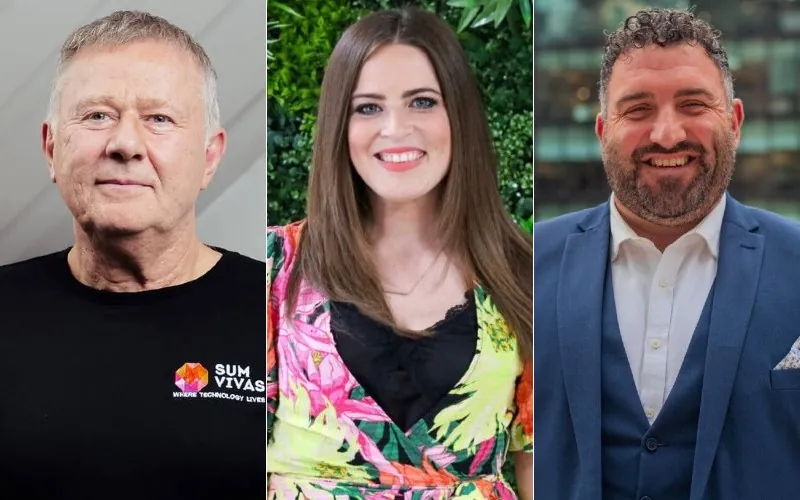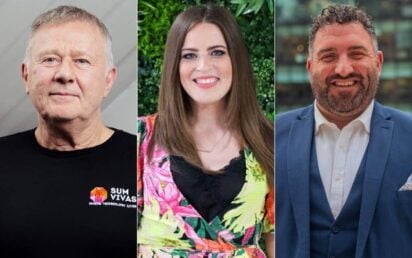Turning a startup into a successful sales operation is essential to survival – so how do you go about doing it?
Three figures set to impart invaluable experience and advice at FUEL Liverpool on Friday have revealed their top tips for effective sales and marketing.
Nicola Docking, MD of Poke Marketing, will speak on the public-facing breakfast panel then serve as an expert in the sales & marketing masterclasses which follow for a select group of businesses.
She says the key to identifying & winning clients is to start with your networks.
“We have a lot of people who’ve worked with us previously, who then moved to other businesses and take us with them – and that network is ultimately what fuels and keeps Poke going,” explains Docking.
In terms of bringing in business from fresh contacts, she advises: “Find out where you can add real value: have you got examples of where you’ve managed to solve a specific problem for somebody? If you find people that also have that problem, package up that solution and take it to them.
“Once you’ve found out who you want to target, it’s about building a relationship throughout that process – not seeing yourself as a separate entity but working alongside the client to fully understand what they need. Even if they don’t buy from you at that point, they will perceive you as someone that can help them – and the likelihood is they will use you again in the future or recommend you to someone else.”
Register to attend breakfast panel & networking (9-10.15am)
Email the editor to enquire about masterclass participation (10.30am-1.30pm)
She will be joined on both the breakfast panel and in the masterclasses by Rob Sims, CEO of ‘digital humans’ startup Sum Vivas and former CEO of Elite Group.
“Start by being absolutely clear on who your ideal customer is and why they need you. Don’t just target anyone with a pulse – target where you have the best product-market fit,” says Sims. “Know their pain points inside out, and lead with how you solve them – not just what you do.
“Winning clients is about persistence and value. Most people give up too early. Be professionally persistent, focus on building trust, and always leave prospects feeling like they learned something useful from you – even if they don’t buy straight away.”
Leon McCowan, sales coach at The Sales Dojo, is the final expert in the masterclasses.
He adds: “Seek the truth and not the sale: stop trying to make everyone become your client and get good at working out the truth. Are you both a good fit for one another?”
Building a sales operation
We asked our experts how founders should build up their sales operation as they scale.
“It’s important that you get everyone within the business on board,” says Docking. “I often see businesses where it’s somebody’s job to be the salesperson: so for example, they have a BD or a department, or the original founder’s ultimate responsibility is to bring in new business.
“Those roles obviously have to exist, but it’s vital that every single person in the business sees themselves and sees their responsibility in selling that business, finding clients and communicating the messages that business is trying to put out. It’s important that the founder knows what they’re saying and why they’re saying it; your messaging is crucial, and it’s important that you keep your team updated, that they feel part of the process.”
Sims says that “founders are the first sales team… in the beginning, you can’t delegate it – you need to sell personally, learn what works, and build your first playbook”.
He continues: “As you scale, document the process, the messages, the objections, and the wins – turn your own instincts into a system. Then hire the right first salespeople: self-starters who are coachable, customer-focused and comfortable with ambiguity.
“Invest early in sales operations – CRM, reporting, and a proper handoff between marketing and sales.
“And above all, stay close to customers even as you scale. Founders who lose touch with real customers build fragile businesses.”
Dovetailing sales & marketing
How can successful marketing — inbound, outbound, or both — feed into sales?
“Marketing and sales should feel like two parts of the same machine, not two different departments throwing blame at each other,” says Sims. “Inbound marketing warms the room – it builds awareness, trust, and demand. Outbound sales go out and create conversations proactively. You need both.
“The magic happens when your inbound engine creates educated prospects, and your outbound team uses marketing insights to target the right people in the right way.”
McCowan agrees that marketing is part of the sales function: “It’s an imperative part of the ‘top of funnel’ element – nothing that can’t be fixed with a fatter pipeline.”
Believe in the product
Docking points out that it can be quite daunting for people who don’t consider themselves to be a salesperson to think that sales and marketing is a skill.
“It is – there’s some really great sales and marketing people – but across your business, it’s about getting everyone to believe in the product,” she says. “If they can naturally and confidently see why it would add value to someone, they will talk about it in a really authentic way, which is much more likely to sell than someone with a slick, well-rehearsed sales approach.”
The key to converting sales, according to Sims, is that “energy sells!”
“If you and your team aren’t excited, confident, and genuinely interested in your product and your customer, it shows – and it loses deals,” he explains.
“Sales and marketing aren’t about tricks or hacks. They’re about genuinely helping people, solving problems, building relationships, and showing up consistently.
“The companies that win aren’t the ones with the cleverest slogans — they’re the ones that care more, listen harder, and move faster.”
McCowan’s final tip: “Read, listen and watch others’ methods; then craft, mould and bend them so it’s your own version of that.”
The other masterclasses at FUEL Liverpool are focused on raising funding; people & performance; and export. You can see the expert line-up here and the breakfast panel speakers here.
Register to attend breakfast panel & networking (9-10.15am)
Email the editor to enquire about masterclass participation (10.30am-1.30pm)
Supported by Growth Platform and Liverpool Business School at Liverpool John Moores University, the event is part of the official LCR Innovation Investment Fortnight (IIF) programme, held from 12th-23rd May. The IIF is an annual showcase of the distinctive approaches, world-leading assets and £2bn investment opportunities that put the Liverpool City Region at the UK forefront of place-based innovation. #LCRinnovation.



